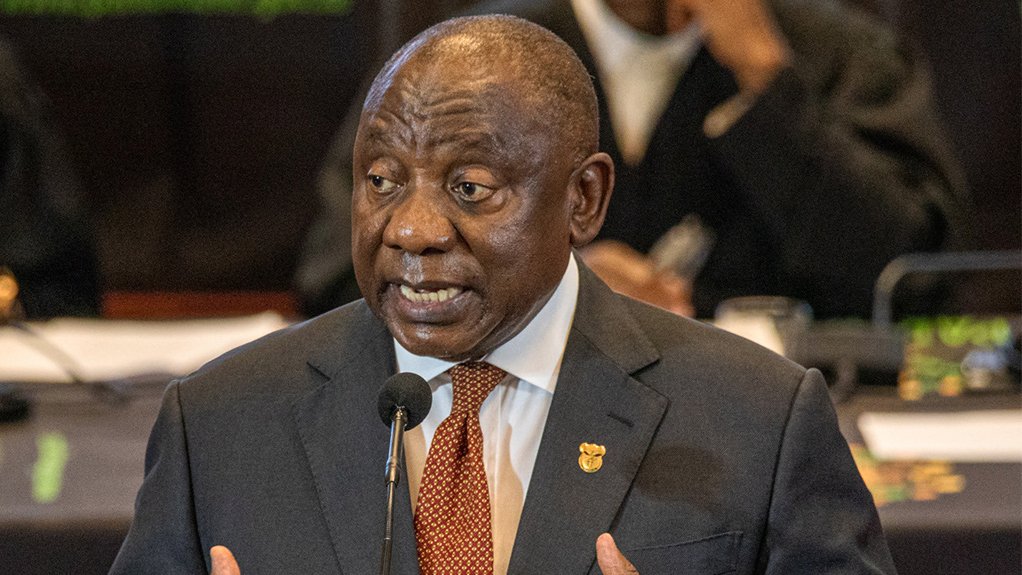President Cyril Ramaphosa’s 2024 State of the Nation Address (SoNA) has, as expected, drawn mixed reactions. The speech placed strong emphasis on addressing significant sources of discontent and division within the country, such as gender-based violence, unemployment, crime, loadshedding, poor service delivery, and corruption. The speech underscored the President’s commitment to economic reform and job creation through initiatives such as the Presidential Youth Employment Intervention.
At a time when South Africa is on the eve of national and provincial elections, where the youth hold immense potential to shape the outcome – if the registrations can translate into voting – it is interesting to note that the President’s approach of using the analogy of young ‘Tintswalo’ has drawn considerable debate.
‘Tintswalo’ and President Ramaphosa’s soft-line approach
While the President’s approach in utilising the positive life trajectory of Tintswalo – a young girl born in democratic South Africa – may have been intended to inspire hope and showcase progress for many since the end of apartheid, critics argue that it overlooks the persistent challenges that many young citizens still face. But is focusing on a single success story providing a misleading impression of the overall state of the nation and downplaying the continuous challenges South Africa faces?
Public opinion can vary, and different individuals and groups may have different perspectives on the nation’s current state. For many, the ANC-led government has created a nurturing environment through various policy interventions, and a system of social transfers geared towards sustainable and productive investment in citizens. This view was supported by the World Bank, which described the country’s policies and programmes for the poor as ‘effective, well-targeted, and providing sizeable benefits to the poorest households.’
Indeed, the post-apartheid environment and individual agency enabled today’s Tintswalos to prosper. These deliberate programmes and policy interventions provide an environment that fosters educational attainment, instils values, and encourages personal growth. However, it is important to acknowledge that not all young people have equal access to resources and opportunities.
President Ramaphosa did not appear harsh, but rather dignified in using political persuasion to convince the world of the government’s resolve to strive for equitable access to education, health care, and social services to ensure that all young people have a fair chance to prosper.
And, of course, relying on political persuasion is not hard. The President, an advocate of the soft line approach, has perfected the art of smothering citizens with embraces – smothering that has lately been peppered with the phrase: ‘ba rata kapa ha ba rate (whether they like it or not), we have done well.’ He did not appear harsh each time he uttered this phrase, but dignified in the conviction of the achievements of the government he has been leading since February 2018. However, the effect of the Tintswalo analogy – accentuating the state’s weaknesses rather than obscuring them – is the opposite of what was intended. The bottom line is that the number of unemployed, politically disengaged, and disgruntled youth is growing, as is their ferocity.
Shrinking fiscal resources and the central role of institutions
As South Africa achieves a significant 30-year milestone of political freedom, the protection of individual freedoms and the establishment of institutions to safeguard democratic values stand as noteworthy achievements. However, amid the celebrations, shrinking fiscal resources and the overarching impact of increasingly reduced budget cuts for the higher education sector will hamper the progress of a new generation of Tintswalos. It has repeatedly been proven that education is an essential pillar of a country’s economy. In Why nations fail: The origins of power, prosperity and poverty, Acemoglu and Robinson underscore the significance of inclusive economic institutions. They argue that countries differ in their economic success because of their different institutions, the rules influencing how the economy works, and the incentives that motivate people. Consider for a moment the difference between teenagers in North and South Korea.
According to these scholars, those in the North grow up in poverty and know that they will not become prosperous due to the propaganda they are fed in school. Those in the South obtain a good education, with incentives encouraging entrepreneurial initiative and creativity.
In South Africa, one of the most disheartening anomalies of our nation’s state is the blatant failure to ensure consequential management for the recurring unauthorised, irregular, fruitless, and wasteful expenditure by municipalities and state institutions reported by the Auditor-General. This is indicative of political power that is exercised arbitrarily.
In steering its future development, a South Africa that embraces diversity, prioritises economic recovery, invests in education, and leverages the incentives provided by state institutions will ensure equitable access to services and opportunities and allow all young people a fair chance to prosper, regardless of political affiliation.
Written by Sethulego Matebesi, Associate Professor and Head of the Department of Sociology, University of the Free State
EMAIL THIS ARTICLE SAVE THIS ARTICLE ARTICLE ENQUIRY
To subscribe email subscriptions@creamermedia.co.za or click here
To advertise email advertising@creamermedia.co.za or click here











